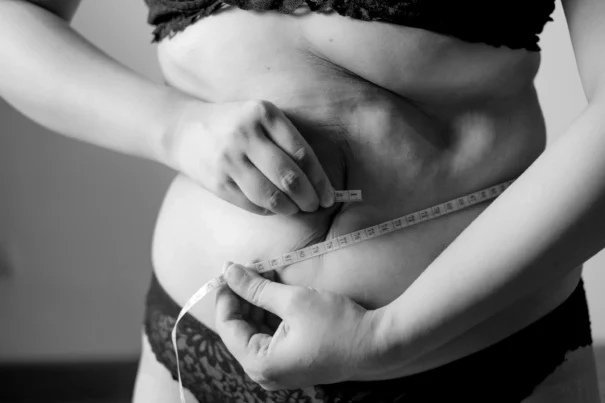
Photo by Fuu J
In a world where diet culture pervades nearly every aspect of our lives, the emergence of body neutrality offers a refreshing perspective. Body neutrality emphasizes acceptance of our bodies for their functionality rather than their appearance, encouraging a focus on well-being instead of aesthetic ideals. Instead of the body positivity approach saying, “I love my arms, cellulite, and all, they are beautiful” body neutrality would say “I love my arms because they help me hug the people I care about.” To understand the true significance of body neutrality, we must examine how diet culture is deeply intertwined with sexism and racism, and why it is fundamentally problematic.
Diet culture promotes the idea that weight loss and thinness are synonymous with health, beauty, and moral worth. It encourages individuals, particularly women and marginalized communities, to conform to narrow standards of attractiveness, often dictated by media and societal norms. This culture is not only detrimental to mental and physical health but is also rooted in historical systems of oppression.
The constant push for women to conform to an idealized body shape can be traced back to patriarchal structures that seek to control women’s autonomy and self-expression. Feminism seeks to dismantle these oppressive systems, making the diet culture’s insistence on female thinness fundamentally anti-feminist. As Naomi Wolf writes in The Beauty Myth, “A culture fixated on female thinness is not an obsession about female beauty, but an obsession about female obedience. Dieting is the most potent political sedative in women’s history; a quietly mad population is a tractable one.”
From the era of enslavement to contemporary society, Black women’s bodies have been subject to intense scrutiny and control. Historically, Black women were commodified and dehumanized, often seen through the lens of exploitation. This legacy of objectification continues today, manifesting in societal expectations regarding beauty, weight, and behavior.
Diet culture disproportionately affects women of color, who often face additional pressures to conform to Eurocentric beauty standards. The glorification of thinness as the ultimate goal perpetuates harmful stereotypes about race, leading to a cycle of body dissatisfaction and health issues. Furthermore, diet products and services are often marketed in ways that exploit cultural insecurities, further entrenching racist ideals. This intersection of diet culture and racism highlights the need for an inclusive approach that recognizes the diverse experiences of all bodies.
Body neutrality serves as a counter-narrative to diet culture’s damaging messages. By promoting an appreciation for what our bodies can do, rather than how they look, body neutrality helps dismantle the fixation on appearance. Saying “my legs give me the ability to walk and run” instead of “my legs are perfect,” body neutrality advocates for an inclusive understanding of bodies, acknowledging that each individual has a unique relationship with their physical self. This inclusivity is vital for recognizing the ways diet culture disproportionately impacts women of color and other marginalized communities. By emphasizing that all bodies deserve respect, body neutrality fosters a sense of community and support.
Diet culture often associates morality with eating habits, leading to feelings of guilt and shame around food choices. Body neutrality challenges this narrative by promoting a non-judgmental approach to nourishment — saying “this pizza is going to taste so good and give me energy for the day” instead of “this pizza is unhealthy and will make me gain weight.” This shift can liberate individuals from the guilt associated with eating, allowing them to cultivate a healthier relationship with food.
While body neutrality presents a powerful alternative to the harmful messages of diet culture, it is essential to acknowledge that the journey toward self-acceptance is not linear. Individuals may struggle with body image issues and the ingrained beliefs of diet culture, and that’s okay. The goal is to foster a supportive environment where everyone can explore their feelings about their bodies without judgment.
Embracing body neutrality requires an active resistance to the systemic sexism and racism embedded in diet culture. In doing so, it serves not only as a personal tool for self-acceptance but also as a powerful form of collective resistance against the oppressive forces of diet culture and systemic oppression.